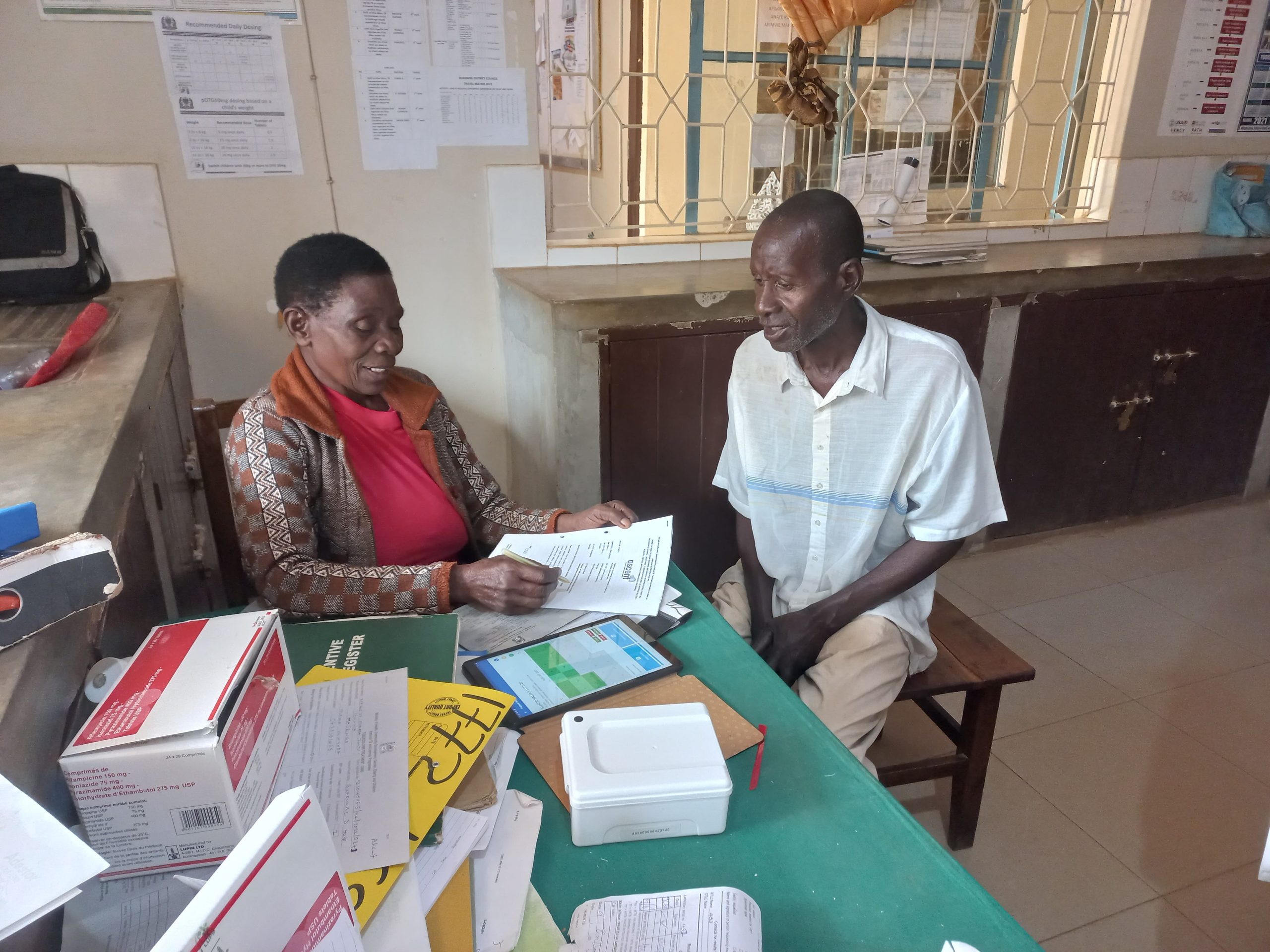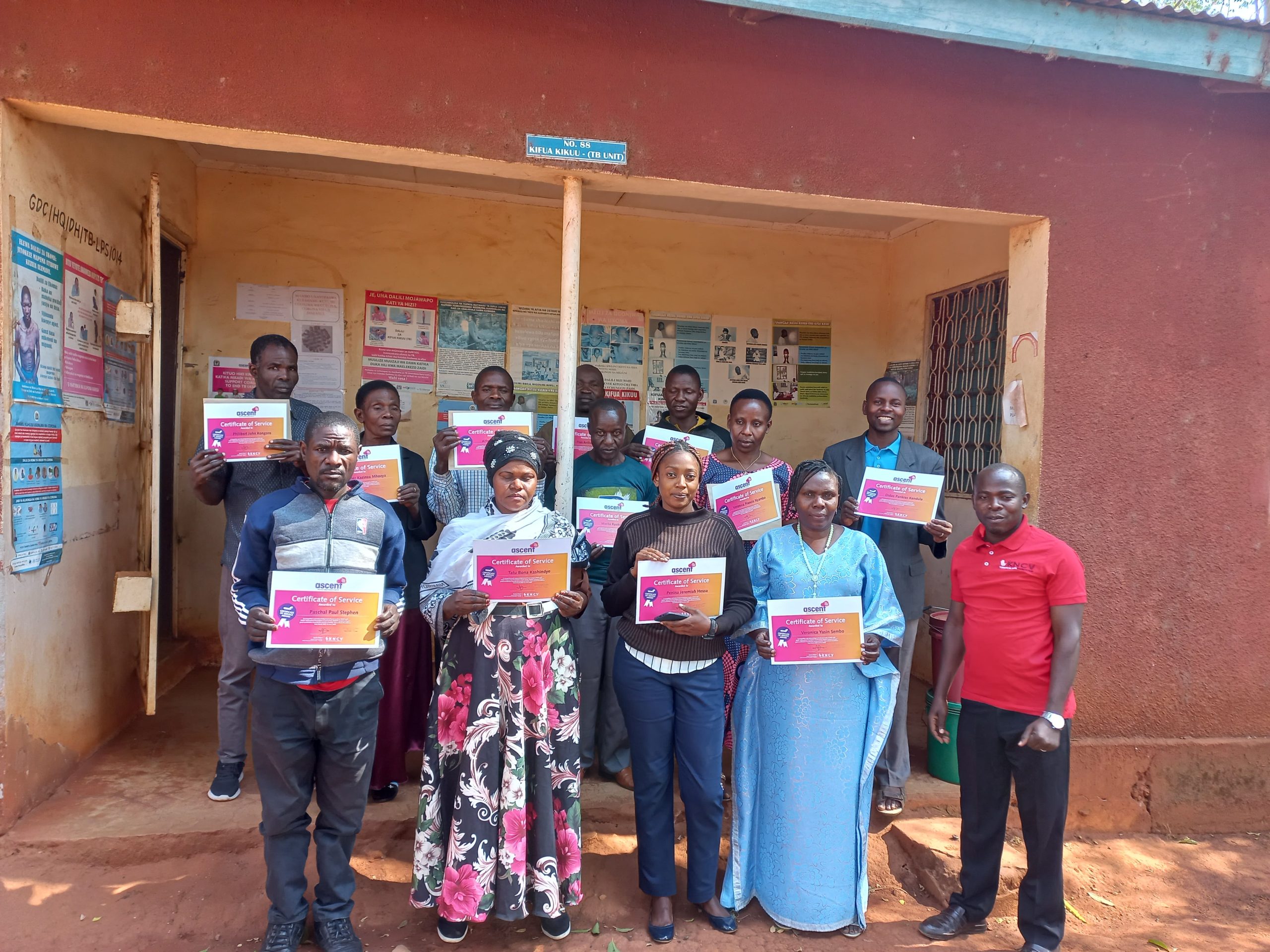The importance of Community Health Workers (CHWs) in improving community health has been widely recognized by various entities like governments, local and international organizations. For ages many programs have continued to integrate CHWs into their organizations to improve access to care, improve health outcomes, and connect clients to need services. In Tanzania, the Unitaid-funded, KNCV Tuberculosis Foundation-led ASCENT project leveraged on this existing health care facility structure to evaluate the impact of digital adherence technologies (DATs) that enable daily digital monitoring and differentiated response to medication adherence for adult tuberculosis (TB) patients.
While DATs provide some insights into who may need to be followed up according to the adherence history, the follow-up requires multiple stakeholders to address the key challenges. One of the stakeholders addressing some of these challenges is the community health care workers.
Community healthcare workers were engaged by the ASCENT project in Tanzania from March 2021 to June 2022. They served as advocates in supporting the project by providing insights for continuous refinement of how DATs and patient-centered care was implemented in the intervention arms of the project.
Their roles and activities were tailored to meet the unique needs of the ASCENT project outputs. Some of their roles were to provide feedback on DATs design, access, and affordability, and feedback on proposed differentiated response to patient adherence using a customized feedback collection tool/form. During the implementation of the rational research, they organized and were part of meetings between patients and the research team. The CHWs acted as liaisons between the project team, health care workers (HCWs), and patients and their caregivers.

The CHWs worked closely with the directly observed treatment (DOT) providers at their respective intervention facilities, and they reported to the facility, the District TB and Leprosy Coordinators (DTLCs) and to the project. They helped to alleviate the HCWs workload by supporting consent taking activities for patients that were to be enrolled on DATs and in providing proper counseling to patients using DATs. CHWs assisted in making follow-up home visits as an aspect of the “patient-centered” approach offered by the project.
CHWs acknowledged that the use of DATs has not only improved but also simplified their routine work. With the help of DATs, they can view patient adherence daily and filter those who need support. Communication with patients using DATs has become easier and home follow-up visits have been minimized to only those few who could not be reached by phone. Fewer home visits help to reduce the arousal of neighborhood curiosities that lead to stigmatization of patients.

From the CHWs experience, it’s evident that as much as the digital technologies are doing a great job to support the TB patients to stay on treatment still human support is apparent, the clients still want to interact with a person, resulting to building a relationship between clients, CHWs and HCWs who, in collaboration with DAT, support the patients in their treatment journey. Digital technology does not replace human interactions.
In recognition of CHW’s great efforts in implementing the ASCENT projects assignments, at the end of their contracts, they were given certificates of recognition to acknowledge their contribution and show appreciation. The certificate ceremonies were conducted in the respective facilities with the Medical in-charge of the facilities awarding the certificates. In others the Regional TB Leprosy Coordinator (RTLC) did the honors of handing over the certificates.
Without the deployment of CHWs in Tanzania, the ASCENT team would not be able to achieve what we are achieving today. We are deeply grateful for their help in our research on and implementation of the use of digital adherence technology so more TB patients can have successful treatment outcomes.
The Unitaid-funded and supported ASCENT project is led by KNCV Tuberculosis Foundation in partnership with The Aurum Institute, London School of Hygiene & Tropical Medicine, and PATH.
